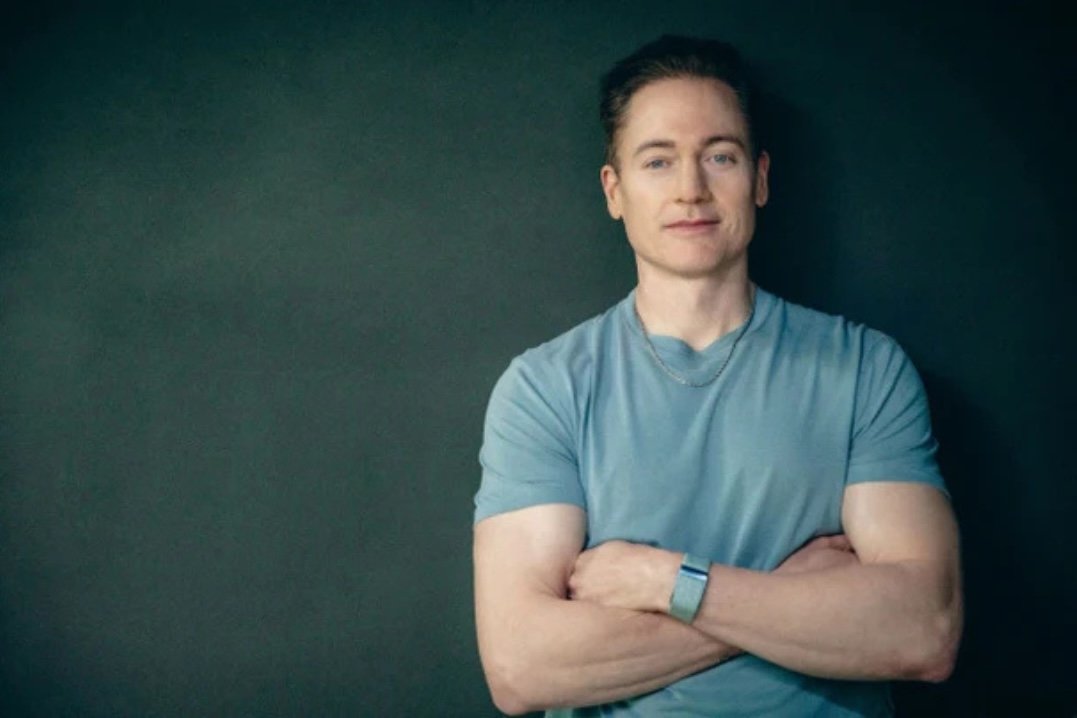What if an Algorithm Planned Every Bite You Took?
Tech entrepreneur Bryan Johnson has famously embraced algorithms to meticulously optimize his diet—tracking calories, macronutrients, and biomarkers in a quest for peak health and longevity. While Johnson’s multi-million-dollar regimen, which involves strict dietary routines, precise nutrient intake, and advanced medical monitoring, may seem out of reach for most, the underlying concept isn't.
Photo of Bryan Johnson, source https://blueprint.bryanjohnson.com
AI-driven nutrition apps and smart kitchen gadgets are now bringing similar principles of data-driven eating into everyday life. These accessible technologies analyze personal health data to offer tailored dietary recommendations, personalized meal plans, and even cooking guidance—all designed to help health-conscious individuals optimize their nutrition without extraordinary expense.
Could AI soon redefine your approach to food, making personalized health optimization an everyday reality?
Imagine walking into your kitchen and being greeted by a robot chef preparing your favorite meal, already tailored precisely to your dietary needs. Or picture your refrigerator predicting exactly what you'll run out of and automatically ordering groceries before you even notice. This isn't science fiction; it's the future that Artificial Intelligence (AI) is building right now. AI isn't just reshaping cars and healthcare—it's revolutionizing how we produce, prepare, and enjoy food every day.
From Farm to Table — Sustainable Food Production
Farmers are already harnessing AI to improve sustainability and efficiency. Companies like CropX use AI-powered sensors to provide real-time soil analysis, reducing water waste, optimizing fertilizer use, and significantly boosting crop yields. The technology not only enhances sustainability but also helps farmers cope with unpredictable weather and rising food demands.
Human Touch: "AI lets us do more with less," explains Sarah Mitchell, a third-generation farmer using CropX sensors. "Knowing exactly how much water or nutrients our crops need each day has changed the way we farm entirely."
Mentioned Company: CropX
Personalized Nutrition — Eating Smarter with AI
AI doesn't just influence what we eat, but why we choose certain foods. Platforms like January AI utilize health data, lifestyle information, and genetic markers to help individuals understand precisely how foods impact their blood sugar and overall health.
However, this personalized future isn't without its challenges. Privacy concerns are real, as people question how much personal health information they should share.
Human Touch: "Initially, I was skeptical about sharing my health data," says fitness enthusiast Jordan Kim. "But seeing how accurately January AI predicted my blood sugar spikes changed my relationship with food for the better."
Mentioned Company: January AI
AI in the Kitchen — Smart Shopping and Waste Reduction
Every year, households discard significant amounts of food, often because it's forgotten or improperly managed. AI-powered refrigerators, like Samsung’s Family Hub, address this issue by managing your food inventory, tracking expiration dates, and suggesting recipes based on what's already available. But the potential doesn't stop at home.
Companies like Winnow Solutions leverage AI in restaurants to dramatically cut food waste by helping chefs understand exactly what's wasted and why, saving businesses money while protecting the planet.
Human Touch: "Before we started using Winnow’s system, we had no idea how much food was wasted daily," says Marco Diaz, a restaurant manager. "Now we’ve cut our food waste by half."
Mentioned Companies: Samsung Family Hub | Winnow Solutions
Robot Chefs and AI Recipe Innovation
Imagine never stressing about dinner preparation again. Companies like Moley Robotics have made this possible with fully automated robotic kitchens that prepare restaurant-quality meals from scratch. Meanwhile, generative AI companies like ChefGPT offer personalized recipe generation, transforming cooking from a chore into an exciting exploration.
Human Touch: "Cooking used to be stressful," laughs Amy Lopez, a working mother and Moley Robotics user. "Now, our robot chef handles dinner, and I have more quality time with my family."
Mentioned Companies: Moley Robotics | ChefGPT
Food Safety and the Ethics of AI
AI is also making our food safer. Companies like Clear Labs employ AI to rapidly detect pathogens, significantly reducing foodborne illness risks. But as with all technology, there are ethical and practical considerations—data privacy, affordability, and ensuring these technologies remain accessible to all.
Human Touch: "Our goal isn’t just faster detection, but safer food on every table," notes Michael Rishworth, a food safety expert at Clear Labs. "AI has given us tools we never imagined possible a decade ago."
Mentioned Company: Clear Labs
What's Next? Lab-grown Foods and AI-enhanced Products
AI continues to fuel the future of food through innovations like lab-grown meat products perfected by machine learning algorithms. Companies like NotCo use AI to develop plant-based alternatives that mimic animal products at a molecular level, offering sustainable and delicious options.
Human Touch: "We’re proving you don't need an animal to have authentic flavors," says NotCo founder Matias Muchnick. "AI lets us understand taste at a new level."
Mentioned Company: NotCo
The Future on Your Plate
AI isn’t just altering what’s on our plates; it’s changing our relationship with food altogether—how we produce, how we prepare, and even how we think about eating. Yet, as we embrace these changes, it's crucial to navigate responsibly, balancing exciting possibilities with careful considerations of ethics, accessibility, and the very human desire for connection in our food traditions.
Call-to-action: "As AI reshapes the food industry, how comfortable are you with technology taking over your kitchen? Share your thoughts."


